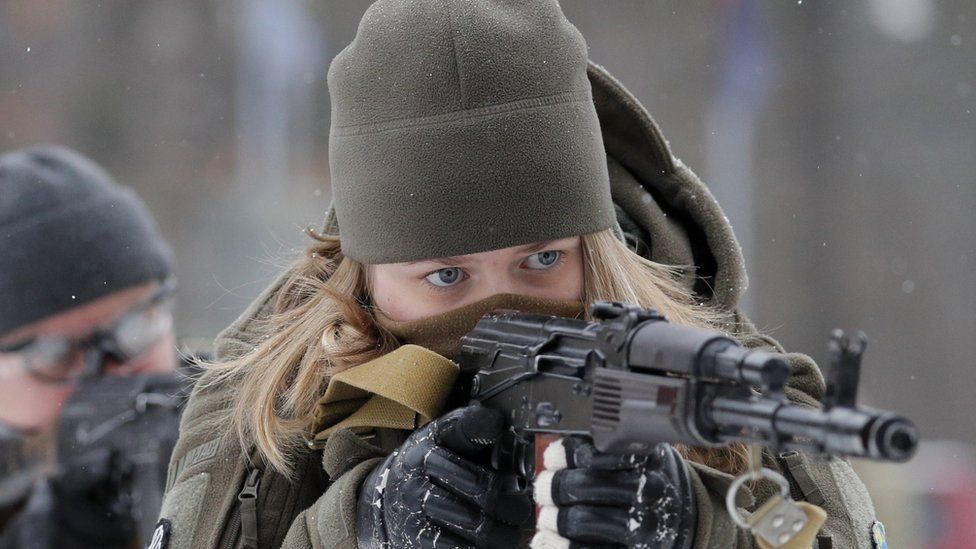Morally infamous, reprehensible from a humanistic point of view, war is –above all– a business.
“There is as much business in destruction as there is in construction.”
As I remember it, the quote is from Heathcliff, the protagonist of Wuthering Heights, the immortal drama of unhappy love written in 1847 by Emily Brontë. Towards the end of the 1939 film version, in the center of a frozen wasteland ravaged by hate and violence, the tormented character (played by Laurence Oliver) ponders the tragic fate of his beloved Cathy (Merle Oberon). .
Now, when the winds of ambition, the hunger for power and extreme polarization open the doors to a new large-scale armed conflict, it is worth pausing for a moment to try to understand the reasons of its protagonists.
Recognizing that conflict is at the core of what we might call “human nature” and that war has been the great constant in the history of our species, it is quite clear that the outbreak in Ukraine is not a surprise or accident, but a carefully thought out response. planned by various actors.
Without falling into the trap of assuming that characters such as Adolf Hitler, Benito Mussolini, Joseph Stalin, or Slobodan Milosevic and now Vladimir Putin, would have been solely responsible for sowing hatred in the face of hollow and goofy environments, it is clear that the current dynamics that have at world on the brink of a new great conflagration is a practical response to a series of problems in the very tectonic plates of the world’s social and economic structure. An example:
The abysmal gap between the “one-percenters” who concentrate wealth and privileges, versus the rest of the world’s population, especially the several hundred million baby-boomers whom the last two major financial crises (1999-2000 and 2008- 2009) shattered their dreams of an old age of tranquility and luxury. This is the main root of disenchantment, neo-racism, anti-immigrant movements and the growth of populist proposals such as those embodied by characters such as Trump, Johnson, Erdogan, Bolsonaro and many more.
Quoting a classic, poverty in itself hardly causes wars, because if it were, half the world would be on fire. True, however, it is also true that savage capitalism, fanaticism and broken dreams contribute to creating fertile fields for polarization and wars.
And the clue that does not fail, the money. In a context of social frustration and profound economic reconversion (the condemnation to permanent unemployment of half of the young people of the first world), a war implies economic reactivation, both to destroy and then to rebuild.
In addition to the nearly 2 trillion dollars spent annually by the global military industry — the United States accounts for more than half — the war itself will generate huge profits for a few. Perhaps starting Joe Biden, who finds in the armed conflict with Russia a clear political lifesaver to his failed leadership.
Without a doubt, the war will bring even more polarization. The leaderships, the more authoritarian, the more they will win. The very internal dynamics of large regions of the world will be transformed. Even if we fall short of direct armed confrontation between US and Russian troops, the renewal of nuclear terror will reach us all. Fear and hatred, the great pillars of a warlike conflict, will become the new global wave.
As absurd as it may seem from a moral point of view – as if “You will not kill” would be of much use in our Latin America without war, but drowned in the rivers of blood of criminal violence -, a new war will “rescue” immediately to the hydrocarbon industry. Also to large speculative investments.
At least in the short term, the main winner of the new scenario is likely to be Putin himself, the Russian neo-tsar. Regardless of his logistical ability to transform the invasion of Ukraine into a long-term occupation, in one fell swoop he was able to return the clock of international geopolitics to the times of the Cold War.
Brutal and painful reminder of the fragility of the current world order -and all the previous ones-, the new war will monopolize the spotlight for a few weeks/months and then it will become part of the “new normality”. Along the way, it will cause a kind of artificial economic revival at immense cost: the corpses of an excessive number of innocent people, especially Ukrainian women, children and civilians.











